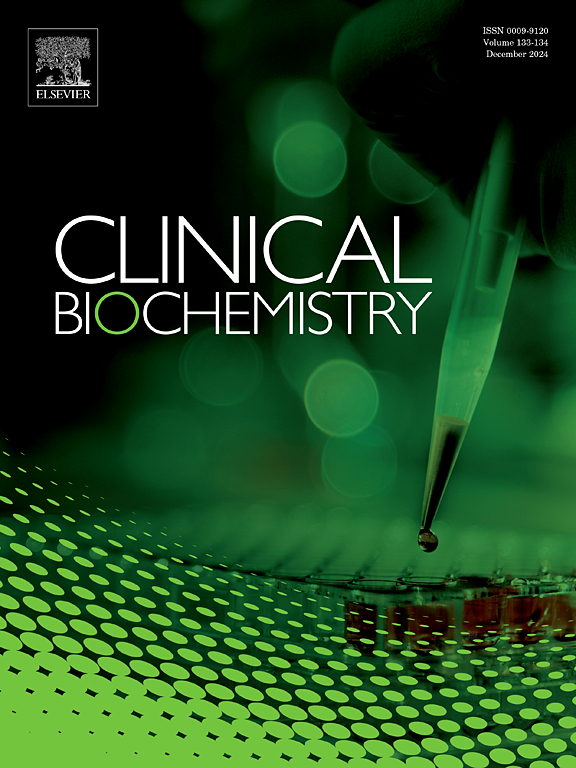Green laboratory practice: Top 2 environmental recommendations for clinical laboratories
IF 2.1
3区 医学
Q2 MEDICAL LABORATORY TECHNOLOGY
引用次数: 0
Abstract
Choosing Wisely Canada has made significant contributions to diagnostic stewardship and appropriate test ordering. Given that laboratories play a crucial role in advancing healthcare efficiency and sustainability, it is imperative to continue advocating for Choosing Wisely laboratory initiatives to minimize unnecessary testing and mitigate the associated environmental impact. Herein, we recommend the focus on two environmental impacts associated with the overuse of diagnostic laboratory tests.
Firstly, collaboration with healthcare providers is essential to raise public awareness about the waste generated by performing lab tests in the absence of a clear clinical indication. Not only does unnecessary testing come with clinical and financial costs, but it also contributes significantly to a substantial carbon footprint. Patients also have a role in reducing waste by understanding when tests are truly necessary and when they might be redundant or even harmful.
Secondly, laboratories should partner with in vitro diagnostic device manufacturers to prioritize environmentally conscientious solutions. This includes minimizing the use of single-use consumables, toxic chemicals, and high-energy consumption processes. Laboratories should adopt a holistic, “environmental lens” approach, scrutinizing every stage of the laboratory total testing workflow— from sample collection and transportation, to testing, reporting, and disposal—to identify areas where waste reduction and process efficiencies can be achieved. The optimization of testing workflows to eliminate unnecessary steps can lead to both environmentally sound and cost-effective operations. In summary, laboratories are in a unique position to lead the way in both improving clinical care and driving eco-friendliness in healthcare.
By aligning with Choosing Wisely initiatives and focusing on greener practices, laboratories can lead the way in improving both patient care and environmental sustainability.
绿色实验室实践:临床实验室环境建议前2名。
明智地选择加拿大在诊断管理和适当的测试订购方面做出了重大贡献。鉴于实验室在提高医疗效率和可持续性方面发挥着至关重要的作用,必须继续倡导明智地选择实验室举措,以尽量减少不必要的测试并减轻相关的环境影响。在此,我们建议关注与过度使用诊断实验室测试相关的两种环境影响。首先,为了提高公众对在没有明确临床指征的情况下进行实验室检测所产生废物的认识,与医疗保健提供者合作至关重要。不必要的测试不仅会带来临床和财务成本,而且还会大大增加碳足迹。病人在减少浪费方面也有自己的作用,他们知道什么时候检查是真正必要的,什么时候检查可能是多余的,甚至是有害的。其次,实验室应与体外诊断设备制造商合作,优先考虑环保的解决方案。这包括尽量减少使用一次性消耗品、有毒化学品和高能量消耗过程。实验室应采用全面的“环境视角”方法,仔细检查实验室整个测试工作流程的每个阶段——从样品收集和运输,到测试、报告和处理——以确定可以减少浪费和提高流程效率的领域。测试工作流程的优化,以消除不必要的步骤,可以导致既环保又经济有效的操作。总之,实验室在改善临床护理和推动医疗保健生态友好方面处于独特的地位。通过与“明智选择”倡议保持一致,并专注于更环保的实践,实验室可以在改善患者护理和环境可持续性方面发挥带头作用。
本文章由计算机程序翻译,如有差异,请以英文原文为准。
求助全文
约1分钟内获得全文
求助全文
来源期刊

Clinical biochemistry
医学-医学实验技术
CiteScore
5.10
自引率
0.00%
发文量
151
审稿时长
25 days
期刊介绍:
Clinical Biochemistry publishes articles relating to clinical chemistry, molecular biology and genetics, therapeutic drug monitoring and toxicology, laboratory immunology and laboratory medicine in general, with the focus on analytical and clinical investigation of laboratory tests in humans used for diagnosis, prognosis, treatment and therapy, and monitoring of disease.
 求助内容:
求助内容: 应助结果提醒方式:
应助结果提醒方式:


